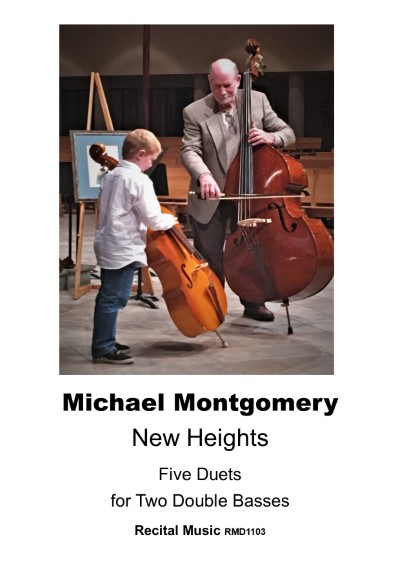New Heights
Five Duets for 2 Double Basses

Composer: Montgomery, Michael
Instrumentation: 2 Double Basses
Publisher Recital Music
[tmr_details_contents_exams]
[tmr_truncated_description]
Page ? of ?
Digital Download – PDF
Shipping costs: No shipping
R.R.P £7.50
Our Price: £6.38
[show_licence_button]
[series_titles]




